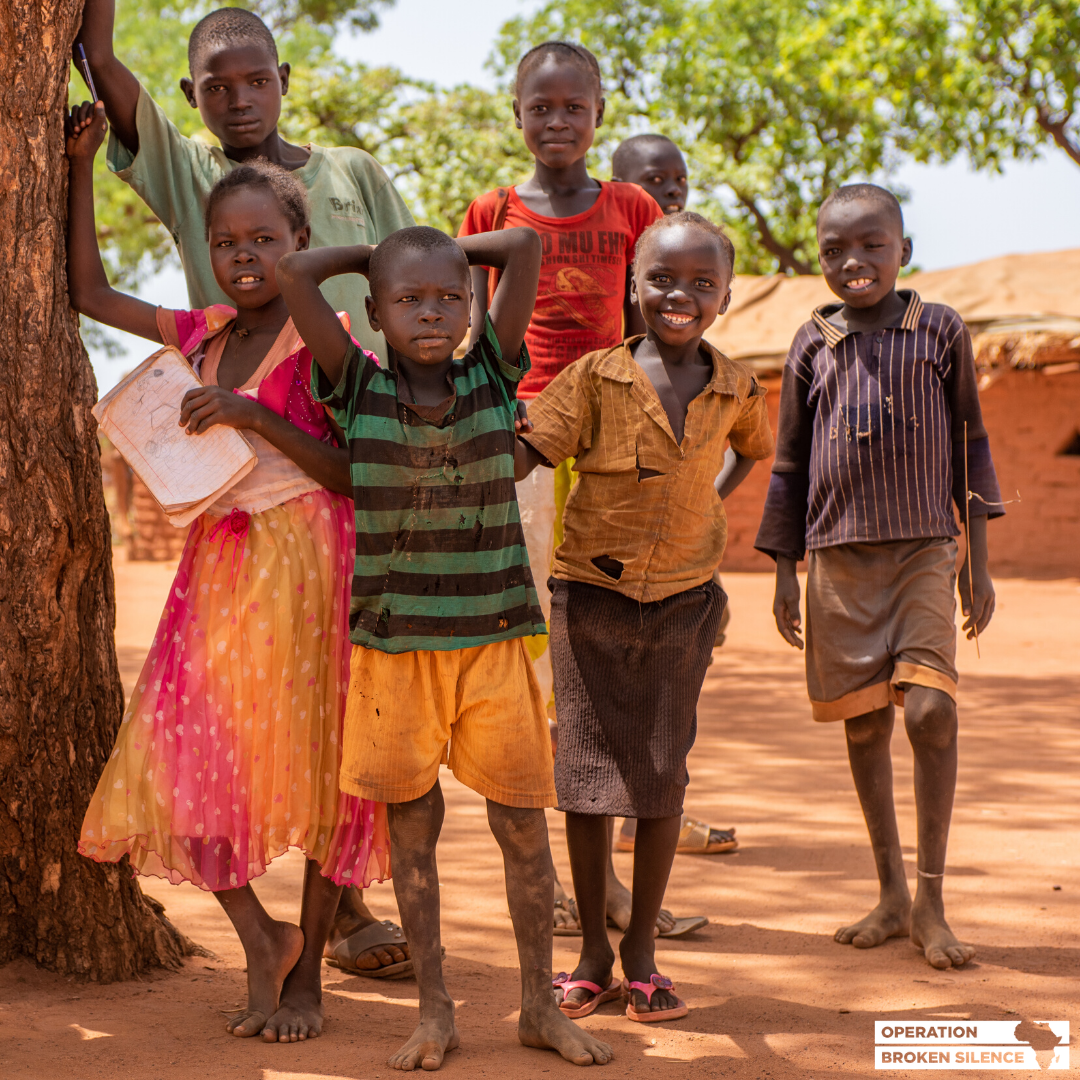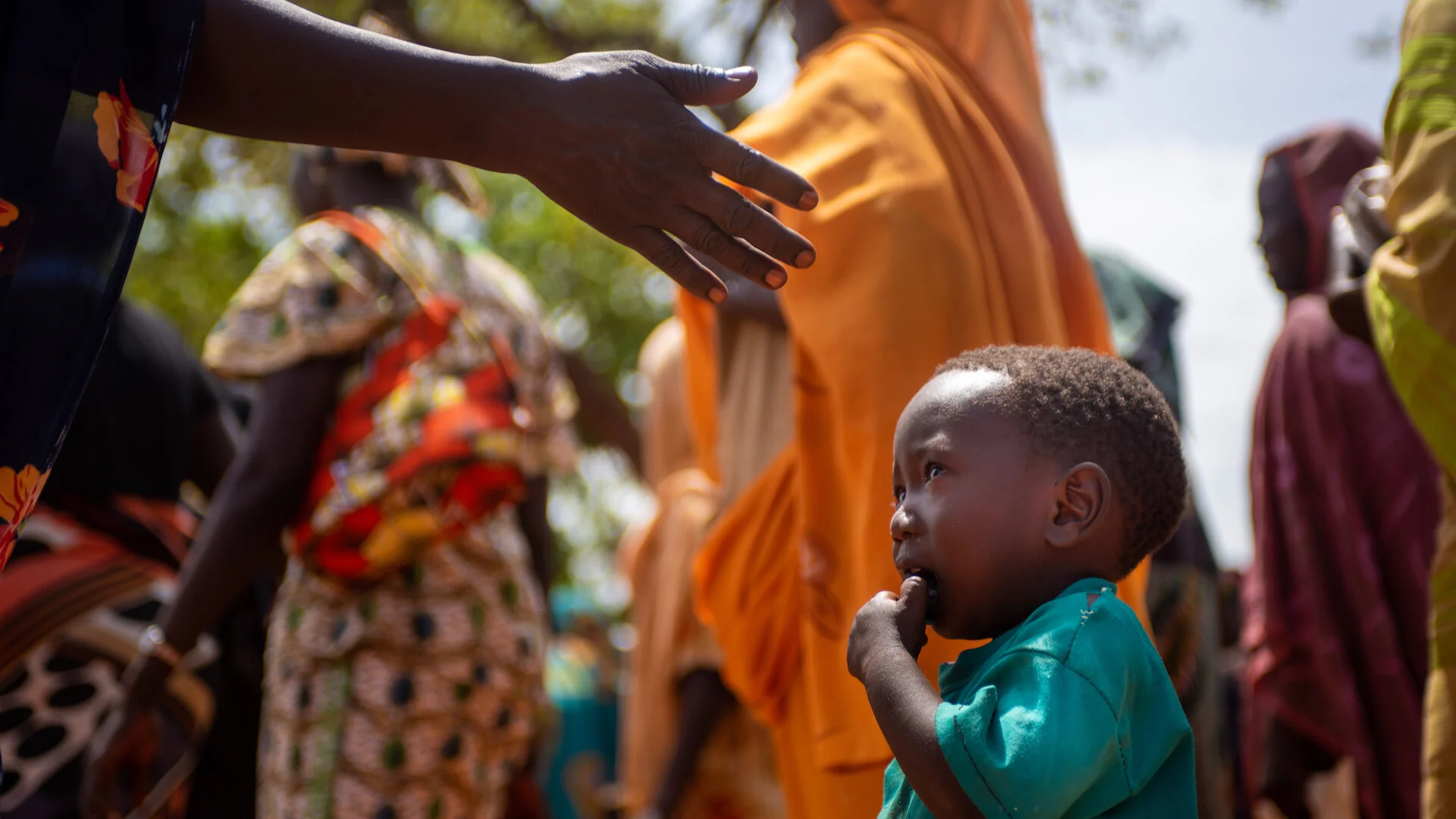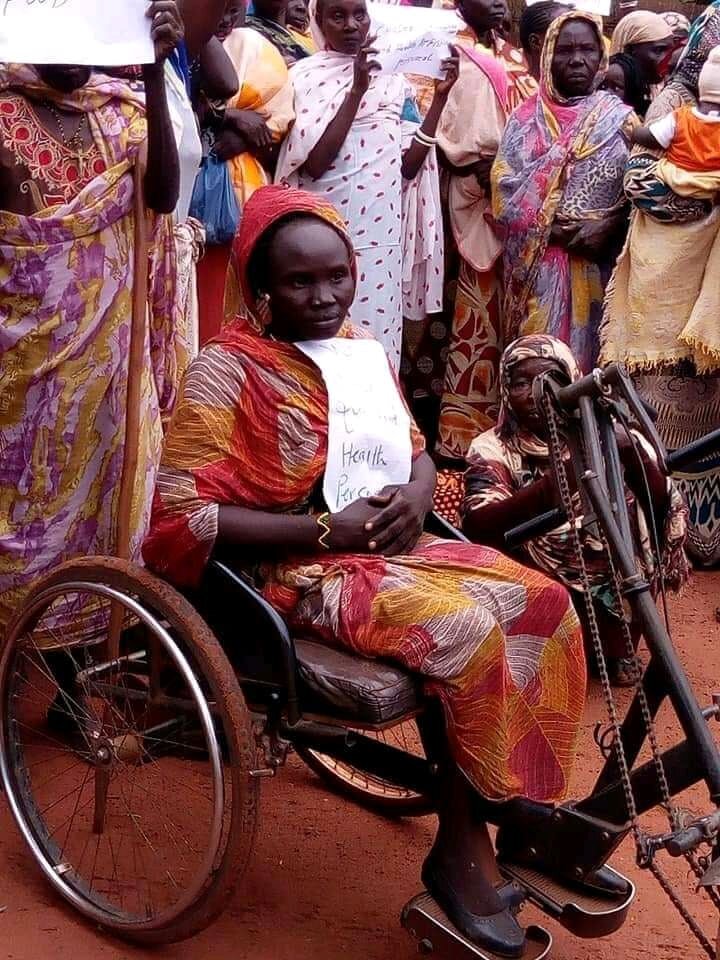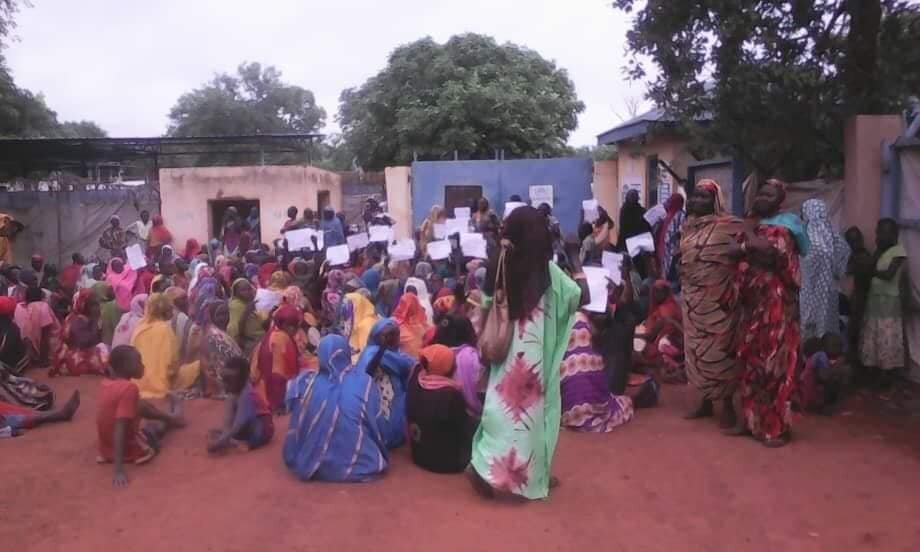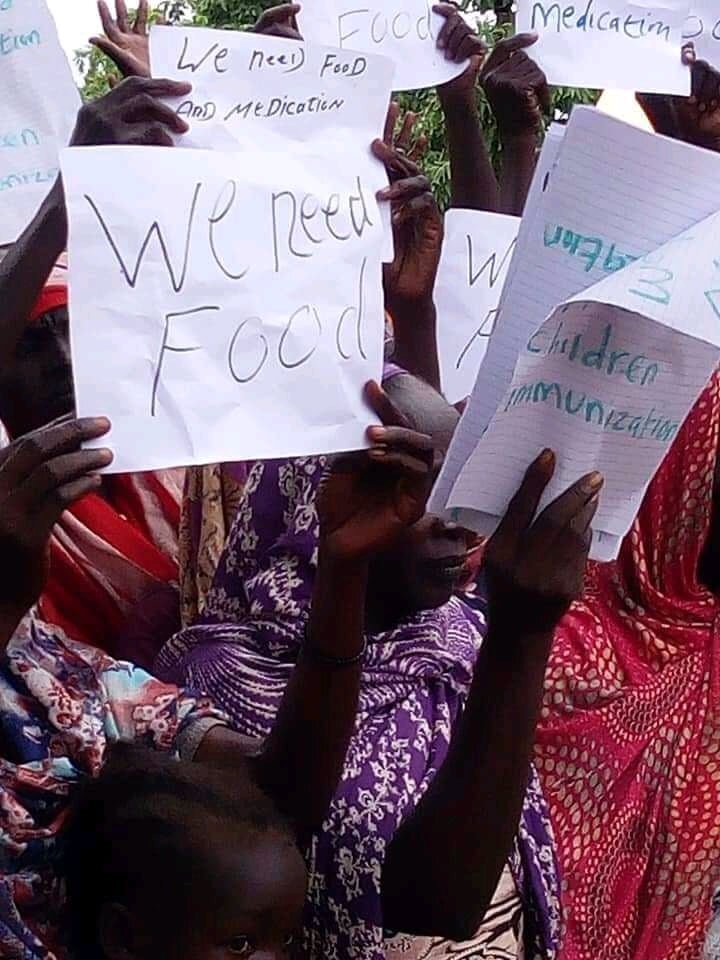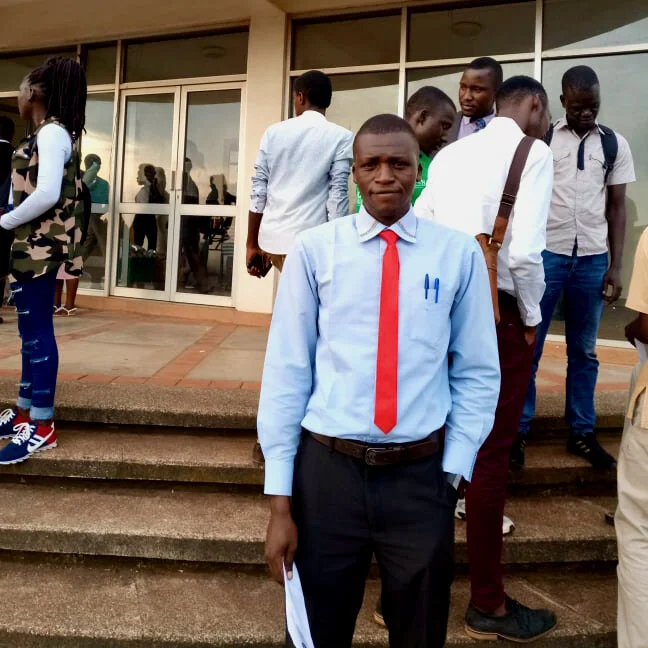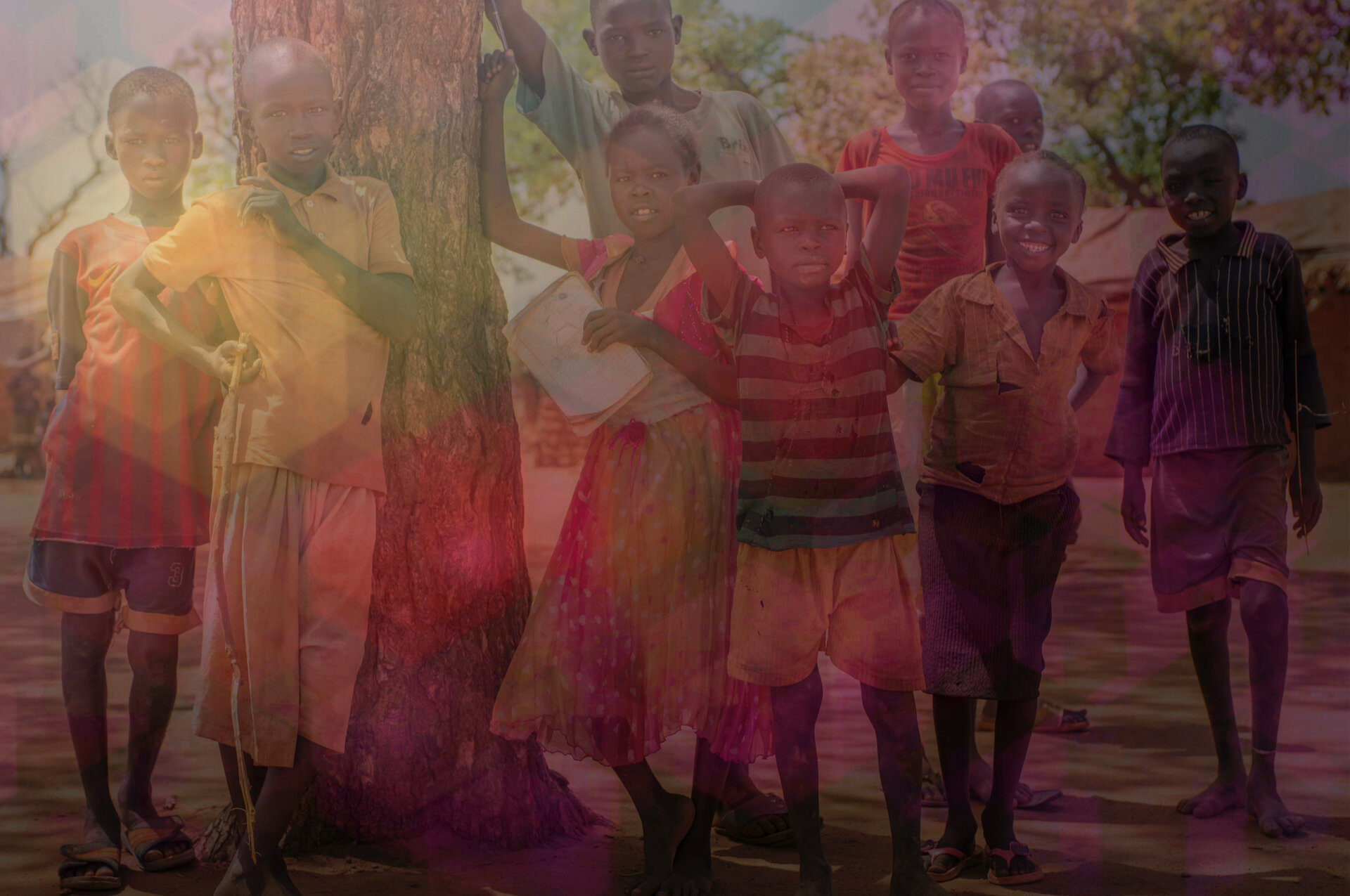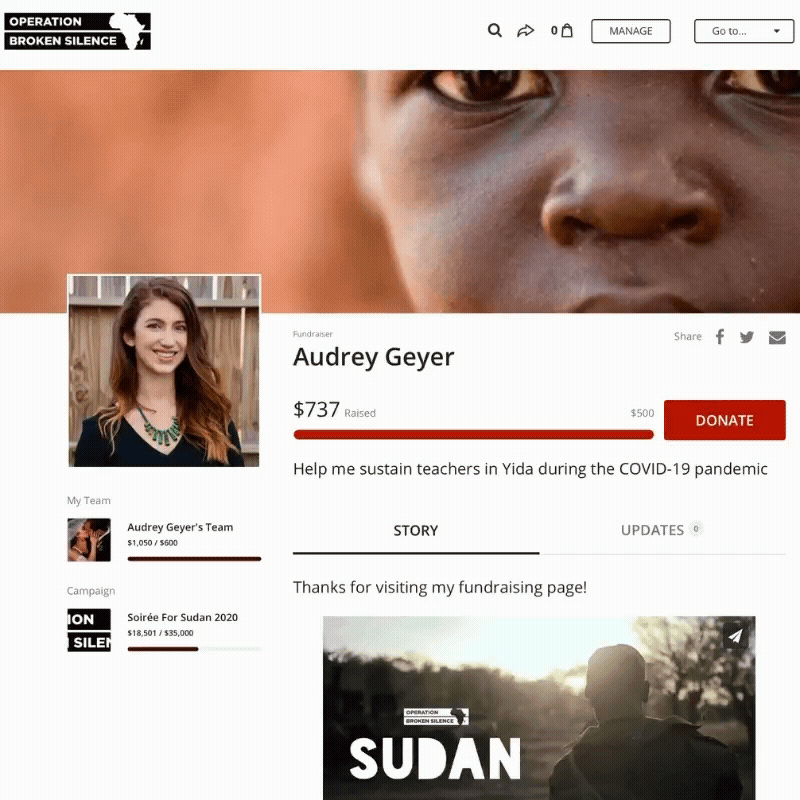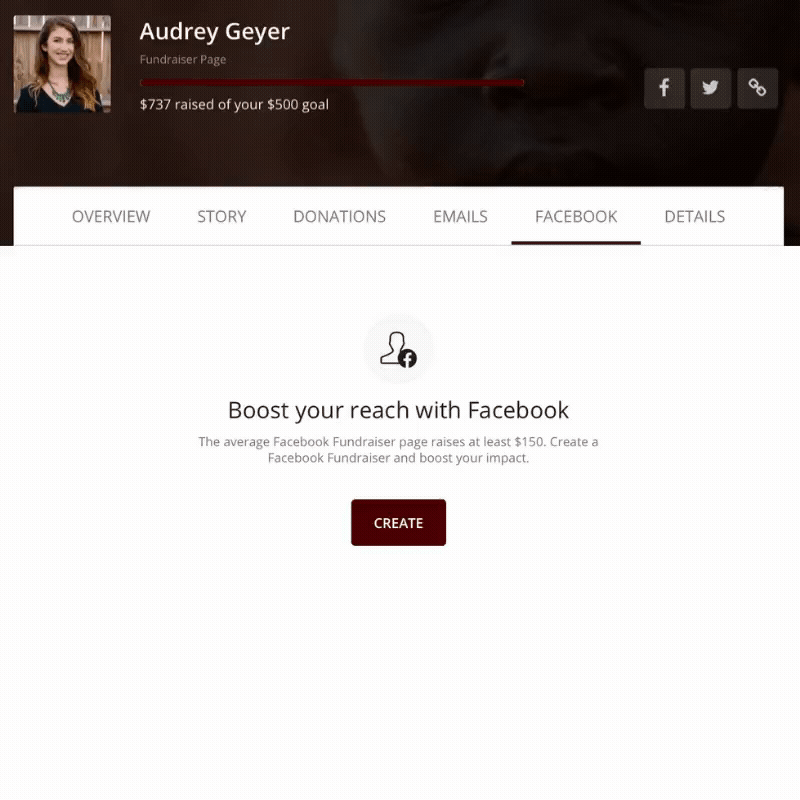News & Updates
Check out the latest from Sudan and our movement
Sudan's Prime Minister Signs Historic Agreement With Nuba People
The agreement affirms that Sudan will separate religion and state, which could end 30 years of brutal Islamic rule.
On September 3, Sudanese Prime Minster Abdalla Hamdok and Sudan People’s Liberation Movement-North leader Abdelaziz Al-Hilu signed an accord in Addis Ababa, Ethiopia. The agreement is another sign of warming relations between the civilian-wing of the transitional government and Nuba leaders.
Background
In 2019, a peaceful revolution swept across Sudan and pushed the country into a period of transitional governance. While several regime officials are under arrest and new civilian leaders have made marginal reforms, top regime generals remain in positions of immense power. Violence by these holdover regime forces is still common today, especially in Sudan’s historically oppressed hinterlands of Darfur, Blue Nile, and the Nuba Mountains.
The situation in the Nuba Mountains remains largely unchanged despite Sudan’s revolution. A ceasefire has been in place since 2016; however, regime forces routinely violate the agreement by targeting isolated Nuba communities near frontline areas. Such attacks are often spearheaded by the Rapid Support Forces and Popular Defense Forces, two holdover regime paramilitary outfits who operate largely outside of the transitional government’s authority.
Today, much of the Nuba Mountains is controlled by the Sudan People’s Liberation Movement-North (SPLM-N), an indigenous armed opposition movement that has prevented regime forces from committing a genocide against the Nuba people since 2011.
The Joint Agreement
The agreement signed by Prime Minister Hamdok and SPLM-N leader Al-Hilu is fairly straightforward. Here’s the text:
We, Representatives of the Transitional Government of the Republic of Sudan and the Sudan People’s Liberation Movement-North, affirm the following principles:
1. Sudan is a multi-racial, multi-ethnic, multi-religious and multi-cultural society. Full recognition and accommodation of these diversities must be affirmed.
2. Complete political and social equalities of all peoples in Sudan must be guaranteed by law.
3. A democratic state must be established in Sudan. For Sudan to become a democratic country where the rights of all citizens are enshrined, the constitution should be based on the principle of “separation of religion and state” in the absence of which the right to self-determination must be respected. Freedom of belief and worship and religious practice shall be guaranteed in full to all Sudanese citizens. The state shall not establish an official religion. No citizen shall be discriminated against based on their religion.
4. The people of Nuba Mountains and Blue Nile (the “Two Areas”) retain the status quo which includes self-protection until security arrangements are agreed upon by the parties to the conflict and until “separation between religion and state” is actualized.
5. The parties hereby agree to maintain the cessation of hostilities throughout the peace process until the security arrangements are agreed upon.
6. The principle of appropriate and fair sharing of power and wealth among the various people of Sudan must be realized through the constitution.
This agreement is remarkable for a number of reasons. Most importantly, it affirms the core demands of the Nuba people, who have long stood for tolerance, secular government, legal protections for all Sudanese, and an end to the catastrophic disaster that was the Bashir regime.
Second, it provides the Nuba people virtual autonomy within Sudan’s borders until separation of religion and state becomes official. This would have been unthinkable just a few years ago, when the Bashir regime was openly pursuing racist and murderous policies against the Nuba people.
The agreement also clearly states that the Nuba have the right to defend themselves until broader security arrangements are agreed upon. This seems to be accounting for the recent ethnic cleansing campaign committed by the Rapid Support Forces in western Nuba Mountains. The SPLM-N did not launch a military intervention to end the ethnic cleansing, despite being well within their rights to do so. The situation became so severe that, just last month, the SPLM-N walked away from peace talks, which were alarmingly being led by the Rapid Support Forces commander Hemeti. This agreement seems to affirm that if the Rapid Support Forces start pushing into SPLM-N held areas, the Nuba resistance movement has the Prime Minister’s blessing to stand their ground.
Finally, the last point of the agreement seems to pave the way for reparations to be paid to the Nuba people, as well as guaranteed political representation in Sudan’s new constitution. Again, this would have been unthinkable just a few years ago, when the Bashir regime was robbing the Nuba people of their land, raping and killing them, and denying their basic rights.
What Happens Next
As with all things in Sudan, time will tell if the principles agreed to in this document are upheld. There are already early signs that trouble may be the horizon. Islamist political parties in Khartoum have denounced the agreement. Even though they are on their heels after being pushed out of the government, they still wield some power and have vast resources at their disposal.
Most concerning is the mere existence of the Rapid Support Forces. That includes their commander Mohamed Hamdan Dagalo, aka Hemeti, who holds a powerful position in Sudan’s transitional government. His forces are responsible for the recent ethnic cleansing in western Nuba. He failed at achieving peace with the Nuba people because of his crimes, which is why the Prime Minister stepped in to negotiate with SPLM-N directly. Hemeti’s well-known, self-aggrandizing personality means he probably won’t be thrilled with how this agreement came to be.
For now though, this is a moment worth celebrating. After nearly ten long years of unspeakable suffering, the Nuba people are closer than ever before to seeing their vision of a more just, more tolerant Sudan realized. Their recognition that lasting peace doesn’t just happen, but must be fought for, achieved, and protected, may just lead to the clouds over Sudan parting once and for all.
What a day that will be.
How You Can Help
There hasn’t been a better time to run toward just, lasting change in Sudan.
While this agreement is a sign that bigger shifts may be on the horizon, a transformed Sudan will only come to be when every single community is resilient and well-resourced.
That reality is at the heart of Operation Broken Silence’s mission. It’s why we fund two incredible Nuba-led schools in Yida Refugee Camp. Our supporters supply 24 Nuba teachers who oversee 1,300 refugee children a year.
Because of the economic fallout of COVID-19, much of that funding has been lost this year. And that’s where you come in.
Our 11th annual 5k is going to be virtual this year. Team captains are already bringing together runners online across the United States. The teachers and students in Yida need you to join them right now. Register for $15 and raise another $35 through your fundraising page before November. Your effort supports them.
Our goal? Make up for every single donation our teachers and students lost this year.
Looking for another way to help? Consider setting up a small monthly gift or making a one-time donation! In our line of our work, every penny counts.
About Us
Operation Broken Silence is building a global movement to empower the Sudanese people through innovative programs as a 501(c)(3) nonprofit organization. We focus on empowering Sudanese change makers and their critical work. Learn more here.
Donations are tax-deductible within the guidelines of U.S. law. Give here.
The UN is trying to close Yida Refugee Camp. Again.
In the midst of a raging global pandemic, the United Nations has decided that it is suddenly an urgent matter to close a critical Sudanese refugee camp.
In the midst of a raging global pandemic, the United Nations (UN) has decided that it is suddenly an urgent matter to close a critical Sudanese refugee camp.
Yida Refugee Camp sits just within South Sudan’s northern border. The camp is home to tens of thousands of refugees who have fled the Sudanese government’s genocidal war in the Nuba Mountains of Sudan since 2011. A fragile ceasefire has been in place in the Nuba Mountains since 2016; however, the situation is far from stable.
Yesterday, several of our contacts in Yida informed us that tensions in the camp are skyrocketing. The United Nations Refugee Agency (UNHCR) has announced it is suspending humanitarian aid to the camp because the existence of Yida is “illegal.” One of the messages we received from a Yida resident who requested to remain anonymous:
Hundreds of Nuba refugees in Yida are protesting UNHCR. They demand that the UN provide food, tents, and medicine, especially vaccines for our children. UNHCR stopped food rations after suddenly claiming that Yida has become illegal and demanding that all camp residents be deported to Ajuong Thok and Pamir camps. Many refugees are refusing to leave because Ajuong Thok and Pamir lack humanitarian services.
This announcement was immediately met with protests:
Why Is This Happening?
The UN has a messy history with Yida Refugee Camp, so much so that UN officials have never recognized the settlement as an official refugee camp.
UNHCR’s first attempt to close Yida in 2012 was a complete disaster. Yida’s then 30,000 residents were strongly urged to move to another refugee camp called Nyeli. Refugees pointed out that Nyeli was prone to severe flooding. UNHCR officials pushed ahead anyways and resettled a small number of Yida residents. Unsurprisingly, all of the resettled refugees were made homeless about one year later when flooding made Nyeli impossible to live in. The UN closed Nyeli soon afterwards.
Since the Nyeli debacle, UNHCR officials have failed to provide justification for trying to shutter Yida. Over the years they have claimed that the camp is too close to the border, that there are armed actors in Yida, and that overpopulation will occur. As Yida residents have pointed out time and time again, these reasons lack evidence or are impossible to justify as reasons to close Yida.
It is true that Yida is less than the 50-kilometers minimum distance from the border set by UN guidelines, but the argument that Yida’s location is a problem has always been irrelevant. The UN has tried several times to move Yida’s residents to other refugee camps, primarily to Ajuong Thok. That camp is only 1.2 miles further from the border than Yida is. It does not meet the UN’s distance guidelines either.
Most concerning though isn’t even the distance of these camps from the border. It’s their actual locations.
Yida Refugee Camp is shielded to the north by the armed Nuba resistance movement, the Sudanese People’s Liberation Movement-North. Ajuong Thok Refugee Camp is near a part of the border controlled by Sudanese government forces, the murderous soldiers that Nuba refugees fled from in the first place.
Ajuong Thok is a mere 11 miles away from government paramilitary outfits like the Rapid Support Forces and Popular Defense Forces and roughly 60 miles away from a Sudanese army base. All three of these armed actors have spearheaded the genocidal war against the Nuba people. Simply put, if any of these government forces decided to launch a cross border strike on a Nuba refugee camp, Ajoung Thok would most likely be the target.
To date, Sudan’s transitional government has failed to meet the Nuba people’s legitimate demands for a peace agreement, governmental reforms, and security guarantees. Government forces have not been withdrawn from frontline positions and are still committing war crimes. A cross border attack on a Nuba refugee camp may be less likely than it was a few years ago, but without a permanent, working peace agreement, the threat still exists.
Refugees in Yida have also expressed concern that humanitarian conditions in Ajoung Thok and another camp, Pamir, aren’t any better than they are in Yida.
In summary, there aren’t any logical or practical benefits for refugees to leave Yida.
What Happens Now?
The latest UNHCR effort to halt humanitarian aid to Yida and close the camp will most likely erode what little trust remains between the Nuba people and UNHCR.
The sudden declaration that Yida is “illegal” is also an odd and disproportional escalation in UNHCR’s rhetoric. The camp has existed since 2011 and, while UN officials have made it pretty clear they don’t officially recognize the settlement as a refugee camp, they have kept some limited services to Yida. The UN has provided no justification to the refugees for why the mere existence of Yida is suddenly “illegal.”
There is already deep distrust of the UN on both sides of the border, largely due to the global body doing so little to protect the Nuba people. Journalist Roopa Gogineni explained why in a 2016 article for PRI:
The pervasive distrust of the UN in Yida stems back to events in Sudan. When war first broke out in June of 2011, thousands sought protection around a UN base in the state capital Kadugli. Sudan security agents walked among the crowds, shooting people suspected of supporting the rebels. UN peacekeepers did not intervene.
Many of the first refugees that arrived in Yida came from Kadugli. They brought with them first hand accounts of the killings.
For many refugees who have called Yida their home for years, they have seen the UN fail them time and time again. While the World Food Programme has made some recent, minimal progress in the warzone itself, UNHCR’s renewed effort to close Yida is just the latest chapter in a hellish story that never seems to end.
Even after all of these years of trust slipping away, refugees in Yida still regularly submit requests for the UN to expand their very limited humanitarian activities. A larger UN presence in the camp would still be welcomed today, especially now that the coronavirus pandemic has reached Sudan and South Sudan. The UN never acknowledges these requests. Sadly, officials still seem more interested in just abandoning the refugees in Yida altogether.
The United Nations may be trying to bail on refugees in Yida again, but we’re not. Operation Broken Silence sponsors 24 Nuba teachers at two schools in Yida Refugee Camp. We’re the only nonprofit organization in the world supporting teachers here. You can help by becoming a generous donor. Your gift will be matched.
Looking for a bolder way to help? Consider setting up a small monthly gift or starting a fundraising campaign! In our line of our work, every penny counts.
About Us
Operation Broken Silence is building a global movement to empower the Sudanese people through innovative programs as a 501(c)(3) nonprofit organization. We focus on empowering Sudanese change makers and their critical work. Learn more here.
Donations are tax-deductible within the guidelines of U.S. law. Give today.
Inside the Forgotten War in Darfur, Where the Killing Never Stopped
Watch a new short documentary on the crisis in Darfur, Sudan.
This is a brief history providing a contextual background for understanding the issues Operation Broken Silence works on. It is part of our resource list for students, teachers, and the curious.
For more information about what's happening in Sudan and our work, please sign up for our email list. You'll get 1 or 2 emails a month.
The jagged peaks of the Jebel Marra mountains rise suddenly out of an endless stretch of desert in western Sudan’s Darfur region. Rebel soldiers, many of whom came here to fight against the government nearly 20 years ago, man their posts.
Today civilians here live in relative safety after decades of war, but these mountaintop villages are completely cut off from the rest of Sudan. To many, trauma from decades of bombs dropped on them by their own government is compounded by their total isolation.
A team from VICE News are the first outside journalists to access the last rebel stronghold in Jebel Marra in five years. What they found is an area still completely cut off from Sudan and still functionally at war. Nearly a year after a historic revolution toppled President Omar al-Bashir, some in Jebel Marra haven’t even heard he is no longer in power.
GET INVOLVED
Operation Broken Silence sponsors Sudanese teachers and students in Yida Refugee Camp. You can help by starting a campaign for them.
About Us
Operation Broken Silence is building a global movement to empower the Sudanese people through innovative programs as a 501(c)(3) nonprofit organization. We focus on empowering Sudanese change makers and their critical work. Learn more here.
Donations are tax-deductible within the guidelines of U.S. law. Give here.
July 2020 Update: Nuba College Scholarship Fund
An update about our college scholarship fund for Nuba students.
Since 2016, Operation Broken Silence has sponsored Jargi Joseph Aloga, a college-ready Nuba student who is studying Public Administration and Management in Uganda.
There is no quality university in the oppressed Nuba Mountains for students like Jargi, so they must attain a higher education elsewhere in east Africa. Because of the devastation of war, most students do not have the financial support to move to a different country to pursue a college degree.
We met Jargi in 2014 when he was a refugee in South Sudan. His remarkable story was featured in our 2015 documentary film Lost Generation of Sudan, which you can watch for free below:
Jargi received his diploma in Public Administration and Management last year and is continuing advanced courses in the same field of study. He plans to return to the Nuba Mountains in a few years. Right now though, Jargi has an immediate $3,500 need to cover his next semester and living expenses.
Unfortunately, our scholarship fund is completely out of money. The group of donors who usually replenish this small, but important fund have stopped giving due to personal financial reasons brought on by the economic fallout of the pandemic. We don’t know when they will be able to give again, but we know for sure that it won’t be this year.
Jargi might not only have to drop out of school, but he may soon lose his home. Our scholarship fund also covers his basic living expenses, like food and rent. Since our scholarship fund has dried up, he is running out of ways to cover basic expenses.
How You Can Help
The only problem here is funding. Your generous giving means Jargi can thrive the rest of the year.
2020 will go down as one of the most challenging years for our work. Giving is down across all of our programs as our supporters feel the economy reeling from the pandemic.
Whether you can pitch in $50 or $500, your generosity is what will help keep this future Sudanese leader on track. His country certainly needs him to succeed.
About Us
Operation Broken Silence is building a global movement to empower the Sudanese people through innovative programs as a 501(c)(3) nonprofit organization. We focus on empowering Sudanese change makers and their critical work. Learn more here.
Donations are tax-deductible within the guidelines of U.S. law. Give today.
Soirée For Sudan $5,000 Match!
Register for our 8th annual virtual gala and help us make the most of a $5,000 matching gift!
Our 8th annual gala is going virtual, which means you can attend from wherever you are! Get ready for three days filled with live events and demos, a silent auction and prizes, and more.
While anyone can pay to enter Soirée For Sudan, you have the option to register for free and raise $100 through your gala fundraising page. A generous private donor is matching up to $5,000 in donations. This means you can hit your goal twice as fast and bring additional support to the 24 teachers we sponsor in Yida Refugee Camp.
Our newest Board member Sarah is showing us how easy it is to use this generous matching gift:
As the new chairwoman of Soirée For Sudan’s Planning Committee, Sarah believes in leading by example. She registered for the event just like all of our other attendees do. It only took her a minute to register for free and get her fundraising page! You can do it too.
Because a private donor is matching all donations made through attendee fundraising pages, Sarah blew her original $100 goal out of the water. Queen.
All you have to do is raise $50 through your fundraising page. Our private donor will pitch in another $50 and double your impact. You can do it!
Sarah's fundraising is helping the 24 teachers we sponsor in Yida Refugee Camp. They’ve lost 60% of their funding from the economic fallout of the pandemic. You can join Sarah and help fix that! When you register for free and fundraise through Soirée For Sudan, your support goes to these teachers. Be awesome like Sarah.
Can't attend but still want to help? Make a matched donation here!
Finally, if you are a member of our monthly giving family The Renewal, don't forget to claim your two free tickets! Shoot us a quick message here to claim your tickets.
About Us
Operation Broken Silence is building a global movement to empower the Sudanese people through innovative programs as a 501(c)(3) nonprofit organization. We focus on empowering Sudanese change makers and their critical work. Learn more here.
Donations are tax-deductible within the guidelines of U.S. law. Give today.
Operation Broken Silence & Facebook Integration
We are excited to announce that our supporters can multiply their impact by seamlessly integrating their Operation Broken Silence fundraising page to Facebook. This feature is now live across all of our campaigns and events.
Hello supporters,
We are excited to announce that you can multiply your impact by seamlessly integrating your Operation Broken Silence fundraising page to Facebook. This feature is now live across all of our campaigns and events.
With this new integration, you can create a fundraising page on our platform, then seamlessly push your page (complete with your name, photo, and headline) to Facebook to create a Facebook fundraiser as well.
This will allow you to raise donations through your OBS fundraising page and your Facebook fundraising page. Giving made on either platform will sync between the two. For example, if someone gives $20 to your Facebook fundraising page, that donation will also show up on your OBS fundraising page, and vice versa.
Our supporters have often had to weigh the benefits and downsides when they choose which platform to start a fundraising page on. This means many of their potential donors who may not be on Facebook or who can only be reached on Facebook have been left out. Our integration eliminates this problem once and for all.
We know this new feature will help our supporters easily reach more donors in their networks and remove some of the barriers to meeting their goals. We are excited to watch you use this new tool to grow and sustain the programs we support in Sudan.
After you have your OBS fundraising page, or if you already have one, here’s how to create a Facebook fundraising page that will sync:
SELECT MANAGE
Login to your OBS fundraising page and click or tap the Manage button at the top-right corner.
Select facebook
It’s the tab on the right side of your fundraising dashboard.
SELECT create
Hit the Create button. If you aren’t already signed in to Facebook, you’ll be prompted to do so. Once you’re signed in, your Facebook fundraising page will be created automatically.
You are now ready to accept donations on both platforms. You can also use our new guide to crush your fundraising goal. Cheers!
Onward,
Mark & Audrey
About Us
Operation Broken Silence is building a global movement to empower the Sudanese people through innovative programs as a 501(c)(3) nonprofit organization. We focus on empowering Sudanese change makers and their critical work. Learn more here.
Donations are tax-deductible within the guidelines of U.S. law. Give today.






